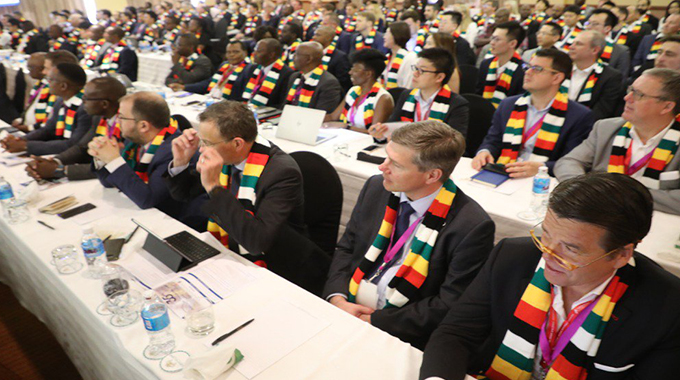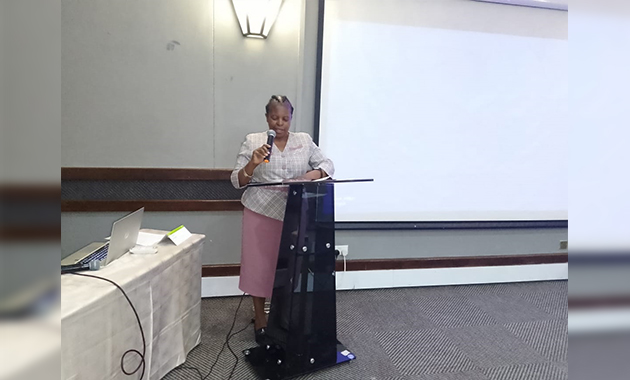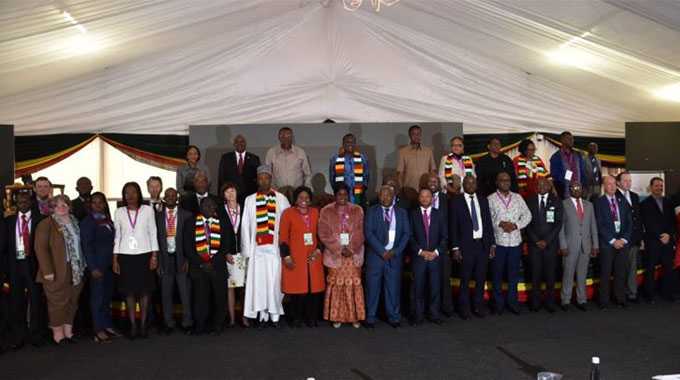Chrome mining beset by a host of challenges

Gibson Mhaka, Senior Features Reporter
THE local mining industry is relatively diversified in terms of minerals produced, the key ones being gold, platinum and associated minerals being diamonds, nickel, coal and chromite.
Studies have however shown that chrome miners in Zimbabwe continue to struggle as lack of machinery and access to international buyers remains a challenge as local prices are currently depressed.
This is despite the fact that the country has the world’s second largest chrome reserves with some of the world’s highest grades which will undoubtedly give Zimbabwe a competitive advantage as a supplier of chrome.
There is no doubt that if fully funded, the sector which is also the second largest employer after gold in the small-scale mining sector, has the potential to make a more meaningful contribution to the growth of the economy through revenue generation and employment creation.
But this sector which can also capacitate the country’s resurgence in the global chromium market and value chain and help meet President Mnangagwa’s Vision 2030 to make Zimbabwe an upper middle income country, is characterised by a host of challenges that inhibit its growth.
These include low productivity; under-capitalisation; lack of technical and management skills; lack of transparency, unfavourable prices of chrome both on the local and international markets and small-scale chrome miners some of whose activities are unregulated and contribute to environmental degradation.
Low prices offered by the smelting companies together with the high operational costs are also forcing some small scale chrome miners to divest into gold mining and others to scale down their operations.
This calls for the Government’s immediate attention to collaborate with the mining industry and financial institutions to fully support orderly mining and growth in the sector.
That request for quick action by the Government to revamp the chrome sector was expounded by President Mnangagwa at the just ended 35th edition of the International Chromium Development Association (ICDA) annual conference which was held in Victoria Falls.
Officially opening the conference, which attracted about 240 key global chrome ore and ferrochrome producers, customers, financiers and entities, President Mnangagwa said the platform came at a good time for Zimbabwe as it helped showcase opportunities in the mining sector as well as capacitate the country’s resurgence in the global chromium market.
He said there are vast opportunities for investment in the beneficiation and value addition across the value chain.
“As a country with the second largest chrome reserves in the world, it’s most opportune that you chose Zimbabwe as the host for the 2019 edition of the ICDA conference.
“As the global demand for chrome steadily increases, we are determined to increase our national productivity and total output contribution to the global supply matrix in line with chrome resources in our country.
“To achieve this, Zimbabwe’s chromium sector is open for the injection of new capital and investment inflows.
“I therefore invite you to commit your investments into our chromium sector and explore possible investments in any of our wide range of exciting mineral resources some of which are yet to be explored,” said the President.
The President has already declared that the country’s future economic development will be anchored by mining and agriculture.
Mines and Mining Development Minister, Winston Chitando buttressed President Mnangagwa’s sentiments saying the conference came to Zimbabwe at the opportune time when Government is out to revamp the chrome sector.
“Zimbabwe had over the last few years been witnessing decreasing ferrochrome production,” said Minister Chitando.
“While 2018 production of around 350 000 tonnes was significant for the country, new capacity being commissioned and planned for commissioning within the year could see a 20 percent increase of ferrochrome production capacity to 418 000 tonnes in 2019.
“Most of the smelting technology in the country is old and there is need to invest in new technology, especially technology that can process fines. In the medium term, further expansions will see Zimbabwe ferrochrome capacity increase to at least 956 000 tonnes by 2022,” he said.
Minister Chitando also said it is imperative that the small-scale miners up their production figures in line with President Mnangagwa’s Vision 2030 to make Zimbabwe an upper middle income country, a vision he said needs maximum mineral utilisation to be achieved.
In their proposed chrome policy document, Zimbabwe Miners Federation (ZMF) Chrome Representative Mr Masango Mahlahla said chrome producers want the Government to identify the mineral as strategic and strive to ensure the sustainable development of the chrome industry in order to harness its full potential in contributing to the development of the national economy.
“Currently, there is no chrome policy which targets both the growth of chrome producers as well as chrome processors who beneficiate chrome ore into concentrates or ferrochrome.
“This policy is designed to facilitate growth while ensuring our nation benefits from the revenue generated during the production and beneficiation processes.
“Chrome ore producers face major growth challenges as there is a limited access to international export market which reduces the opportunities for chrome producers to earn much needed foreign currency to help resuscitate operations.
“In addition, the domestic chrome market is dominated with predatory buyers who have formed domestic cartels which purchase chrome at an average price which is valued at 15 percent of export sales prices,” said Mr Mahlahla.
He said the unregulated domestic market prevents Zimbabwe’s large number of indigenous chrome ore producers from sustainable growth adding that chrome ore production was now declining due to the low prices being paid by local smelters.
“The objective of this chrome policy is to promote the sustainable development of the chrome industry for the benefit of all Zimbabweans by ensuring competitiveness of the Zimbabwe chrome production sector on the global market, promoting diversification and integration of the chrome industry into the mainstream economy and ensuring that the sector contributes fully to the economic development of the country and also ensuring that chrome mining activities are undertaken in accordance with the country’s environmental laws and international best practices among other objectives.”
In view of safety, technical support and environmental degradation worries, Mr Mahlahla said there was need for programmes specifically designed to support chrome miners as they prepare to mine below 20 meters in depth.
“This will ensure greater efficiencies are realised, sustainable mining, and high production volumes. Majority of mines have significant chrome resource within the mines which due to high expenses and limited technical expertise are not being fully accessed. A strong government led initiative will ensure these experts are available to miners at a reasonable cost,” said Mr Mahlahla.
The call to get tough on reckless chrome miners came after Government recently ordered all chrome mining activities along the Shurugwi-Zvishavane highway to stop due to the destruction that the unplanned extraction of the mineral was causing to the highway.
Certainly, when these proposed measures or policies are put into action they should bring sanity and growth to chrome mining in the country.
This is because currently, the majority of small-scale miners in the sector rely on sales to capitalise operations as they are failing to invest in efficiency thereby stifling the growth in the sector.
Meanwhile, small-scale chrome miners are on record calling for the need for competition in terms of multiple buyers and sellers as well as the need for government regulation to ensure open distribution of information.
ZMF vice president – Women’s Affairs, Ms Lindi Mpofu said small-scale chrome miners continue to face great challenges.
She passionately called on government to support small-scale miners as part of the expansion of its chrome industry whose low production is attributed to lack of machinery.
“As the second largest chrome deposit in the world, more initiative should be taken to firstly address the use of current trading prices locally to ensure growth of the miner. Without continued exploitation of the miner, Zimbabwe would see the growth of local indigenous players and much needed government revenue from chrome. In order to meet our country’s vision for 2030, government is required to support chrome miners to ensure competitiveness and expansion of the country’s chrome production sector on the global market and to promote the use of world class technology across the chrome value chain,” said Ms Mpofu who is also the 2nd National Chrome Representative and member of the MMCZ Chrome Consultative Group.












Comments